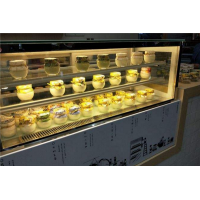 抑郁症,是一种常见病,估计全球约有3.5亿名患者。患者心情郁闷,丧失兴趣或享受感,产生负罪感,或自尊心不足,睡眠和食欲紊乱,身体疲倦,注意力不易集中。抑郁症不同于通常的情绪波动和对日常生活中挑战产生的短暂情绪反应,尤其是长期的中度或重度抑郁症可能会成为严重疾患。 抑郁症可能长期存在,或经常复发,从而严重影响个人的工作或学习能力或日常生活能力,严重时可引致自杀行为。全球每年自杀死亡人数估计高达100万人。轻微的抑郁症患者不用药物即可处理,而中度或重度抑郁症患者则可能需要药物治疗以及更专业的治疗。但是遗憾的是,虽然对抑郁症已有行之有效的治疗办法,全球只有不足一半的患者(在某些国家中仅有不到10%的患者)接受有效治疗。影响有效治疗的因素有:缺乏资源,缺乏训练有素的卫生保健人员,以及社会对精神疾患的歧视等(来源:世界卫生组织)。令人欣慰的是, 最新研究发现,咖啡和咖啡摄入量的增加,与抑郁症风险降低严重相关。这是中国青岛大学公共卫生学院完成的一项研究。研究人员对观察性研究进行荟萃分析,来检测成人抑郁症风险与咖啡和咖啡因摄入量之间的关系。 这项研究成果发表在2016年3月份《澳大利亚和新西兰精神病学》杂志(TheAustralian and New Zealand Journal of Psychiatry)上。(原文网址: http://www.psychiatryadvisor.com/mood-disorders/does-coffee-and-caffeine-lower-risk-of-depression/article/485602/ )(PsychiatryAdvisor 2016年3月25日报道)鉴于可能无法打开原文网址,现将原英文附于此:
抑郁症,是一种常见病,估计全球约有3.5亿名患者。患者心情郁闷,丧失兴趣或享受感,产生负罪感,或自尊心不足,睡眠和食欲紊乱,身体疲倦,注意力不易集中。抑郁症不同于通常的情绪波动和对日常生活中挑战产生的短暂情绪反应,尤其是长期的中度或重度抑郁症可能会成为严重疾患。 抑郁症可能长期存在,或经常复发,从而严重影响个人的工作或学习能力或日常生活能力,严重时可引致自杀行为。全球每年自杀死亡人数估计高达100万人。轻微的抑郁症患者不用药物即可处理,而中度或重度抑郁症患者则可能需要药物治疗以及更专业的治疗。但是遗憾的是,虽然对抑郁症已有行之有效的治疗办法,全球只有不足一半的患者(在某些国家中仅有不到10%的患者)接受有效治疗。影响有效治疗的因素有:缺乏资源,缺乏训练有素的卫生保健人员,以及社会对精神疾患的歧视等(来源:世界卫生组织)。令人欣慰的是, 最新研究发现,咖啡和咖啡摄入量的增加,与抑郁症风险降低严重相关。这是中国青岛大学公共卫生学院完成的一项研究。研究人员对观察性研究进行荟萃分析,来检测成人抑郁症风险与咖啡和咖啡因摄入量之间的关系。 这项研究成果发表在2016年3月份《澳大利亚和新西兰精神病学》杂志(TheAustralian and New Zealand Journal of Psychiatry)上。(原文网址: http://www.psychiatryadvisor.com/mood-disorders/does-coffee-and-caffeine-lower-risk-of-depression/article/485602/ )(PsychiatryAdvisor 2016年3月25日报道)鉴于可能无法打开原文网址,现将原英文附于此:Coffee, Caffeine May Be linked With Decreased Depression RiskDepression affects an estimated 15% of adults in high-income nations, and a growing body of research suggests that it is associated with several lifestyle and dietary factors such as physical activity, smoking, alcohol intake, and consumption of coffee and tea — the most commonly consumed beverages worldwide besides water.Experts propose that caffeine facilitates the transmission of serotonin and dopamine, which contribute to depression. While some studies have found an inverse relationship between coffee or caffeine intake and depression, others have found no beneficial effect.Researchers at Qingdao University Medical College in China conducted the first meta-analysis of observational studies to examine the link between depression risk in adults and consumption of coffee and caffeine, seeking to clarify the link by conducting a dose-response analysis of “all available data of observational studies to derive a quantitative estimation of the association between coffee or caffeine intake and depression.” The analysis covered 15 case-control, cohort, and cross-sectional studies that included a cumulative 330 677 participants for the coffee-depression association and 38 223 participants for the caffeine-depression association.The researchers found a linear relationship between coffee consumption anddepression risk, with a dose-response relationship of 8% reduced risk for each cup consumed per day.Additionally, they observed a nonlinear relationship between caffeine intake and depression risk, in which “the risk of depression decreased faster and the association became significant when the caffeine consumption was above 68 mg/day and below 509 mg/day.”Although researchers are not certain about the mechanisms driving the link between depression and coffee or caffeine consumption, several potential explanations have emerged. Previous findings have implicated inflammation and oxidative stress in the pathophysiology of depression, and one possibility is that the various chemicals present in coffee in significant amounts — including chlorogenic acid, nicotinic acid, trigonelline, quinolinic acid, tannic acid, pyrogallic acid — have anti-inflammatory and antioxidant effects that impact depression.“Second, caffeine, as a nonspecific adenosine A1/ A2A receptor antagonist, generates psychostimulant effects through modulating dopaminergic transmission… and major metabolites of caffeine act on adenosine receptors in the brain,” the researchers wrote. This may help explain the reduced risk of depression associated with coffee intake.Some of the limitations of the study included high between-study heterogeneity, the use of different methods across studies to assess caffeine intake, and the possibility of confounding by certain side effects. For example, ifpatients with depressionavoid or minimize caffeine consumption because of its anxiogenic effects, “then there would appear to be a correlation between greater caffeine intake and less depression, especially in the cross-sectional studies,” the authors wrote.Although these findings provide promising results, further investigation is needed to elucidate underlying mechanisms in the relationship between depression risk and coffee or caffeine intake.Reference:Wang L,Shen X,Wu Y,Zhang D.Coffee and caffeine consumption and depression: A meta-analysis of observational studies.Aust N Z J Psychiatry.2016; 50(3):228-42.上面Reference列出的这篇论文的原摘要链接地址https://www.ncbi.nlm.nih.gov/pubmed/26339067文章标题:咖啡和咖啡因摄入量与抑郁症:观察性研究的荟萃分析Coffee and caffeine consumption and depression: A meta-analysis of observational studies研究结论:咖啡和咖啡因摄入与抑郁症风险降严重相关Conclusion:Coffee and caffeine consumption were significantly associated with decreased risk of depression这篇发表在《澳大利亚和新西兰精神病学》杂志上的文章是青岛大学公共卫生学院 2016届硕士生王龙飞的毕业论文《咖啡和咖啡因的摄入与代谢综合征抑郁症关系的研究》(见 http://ggwsxy.qdu.edu.cn/info/1060/1487.htm)其实,早在2013年7月24日《哈佛学报》就曾报道,哈佛大学公共卫生学院的研究表明,每天喝几杯咖啡可使自杀率降低近50%(英文链接http://news.harvard.edu/gazette/story/2013/07/drinking-coffee-may-reduce-risk-of-suicide-by-50/) 。该研究发表在2013年7月2号的《世界生物精神病学》学报上(原文见coffee vs decreased suicide)。长按识别二维码,了解更多

版权信息:以上文章内容转载自【黄伟咖啡工作室】,转载请联系原作者。作者:黄伟侵权请联系:weixin@coffeesalon.com投稿合作:tips@coffeesalon.com













